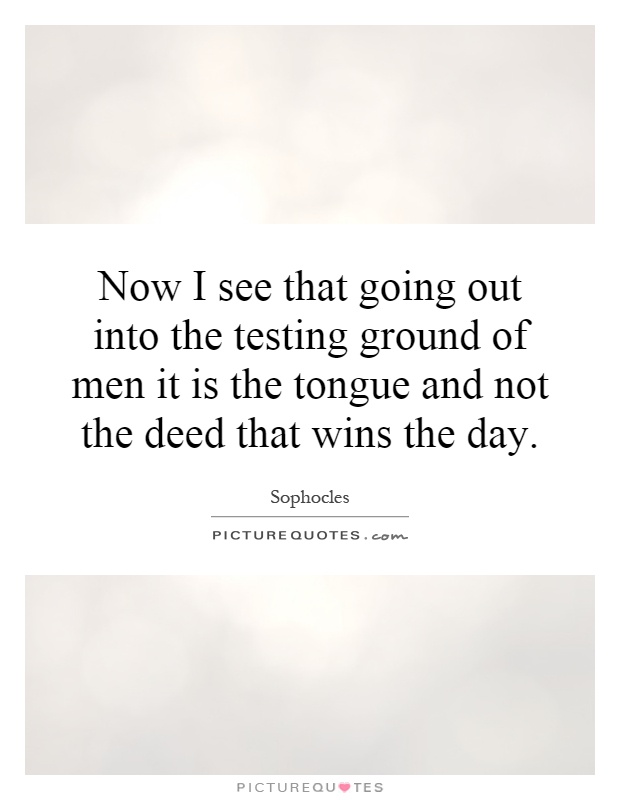Now I see that going out into the testing ground of men it is the tongue and not the deed that wins the day

Now I see that going out into the testing ground of men it is the tongue and not the deed that wins the day
In Sophocles' plays, particularly in works like "Antigone" and "Oedipus Rex," the power of language and rhetoric is a central theme. The quote "Now I see that going out into the testing ground of men it is the tongue and not the deed that wins the day" speaks to the idea that words and persuasion hold more sway in the world of men than actions or deeds.Throughout Sophocles' plays, characters often find themselves embroiled in conflicts that are ultimately resolved through the power of speech. In "Antigone," for example, the titular character uses her eloquence and persuasive arguments to defend her decision to bury her brother, despite the king's decree. Similarly, in "Oedipus Rex," Oedipus' downfall is ultimately brought about by his own words and actions, as he unknowingly fulfills the prophecy that he will kill his father and marry his mother.
The quote also highlights the importance of rhetoric and persuasion in the political and social spheres. In ancient Greece, where Sophocles lived and wrote, public speaking and debate were highly valued skills, and the ability to sway an audience with words was seen as a mark of intelligence and power. This is evident in many of Sophocles' plays, where characters use their rhetorical skills to manipulate others and achieve their goals.
Furthermore, the quote can also be interpreted as a commentary on the nature of truth and perception. In a world where appearances can be deceiving and reality is often subjective, the ability to craft a convincing argument or narrative can be more powerful than any physical action. This is a recurring theme in Sophocles' works, where characters often struggle to discern the truth amidst a web of lies and half-truths.
Overall, the quote "Now I see that going out into the testing ground of men it is the tongue and not the deed that wins the day" encapsulates the central role of language and persuasion in Sophocles' plays, as well as the broader themes of truth, power, and perception that permeate his work.












 Friendship Quotes
Friendship Quotes Love Quotes
Love Quotes Life Quotes
Life Quotes Funny Quotes
Funny Quotes Motivational Quotes
Motivational Quotes Inspirational Quotes
Inspirational Quotes